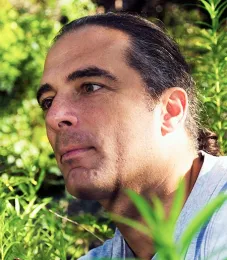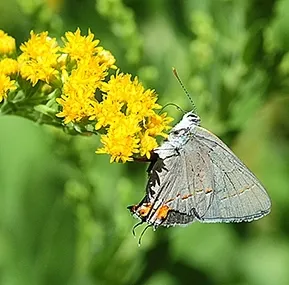Andre Kessler Seminar: Plant Interactions and Defenses

The virtual seminar is set for 4:10 to 5 p.m., Wednesday, Dec. 9 and will be hosted by Professor Richard "Rick" Karban of the Department of Entomology and Nematology. To attend, access this form for the direct link.
"As sessile organisms, plants have to adjust their metabolism to ever-changing environmental conditions in order to stay in place and successfully reproduce," Kessler says in his abstract. "Thereby plants orchestrate interactions with other organisms (e.g. other plants, herbivores, pathogens, predators etc.) by providing cues or signals to whoever can read them. The seemingly universal language used to manipulate those interactions is chemical. This presentation reviews some of the Kessler Lab research on the ecological functionality and environmental context-dependency of chemical information transfer in the charismatic Northeastern goldenrod plants, Solidago altissima."
As a chemical ecologist, his research focuses on the mechanisms, ecological consequences and the evolution of plant induced responses to herbivore damage.

"Moreover, we put a particular emphasis on studying the ecological functions and evolution of plant metabolic responses and chemical information transfer in the plants' native habitats. With more recent projects my group tries to apply some of the chemical ecology principles found in native systems to control insect pests in agricultural systems. My research includes a number of different study systems in New York, Utah, Peru, Costa Rica, Colombia and Kenya."
Professor Kessler received his master's degree from the University of Würzbug, Germany, where he studied ecology, genetics and geobotany. He earned his doctorate from the Max Planck Institute for Chemical Ecology and University of Jena, Germany.
Cooperative Extension specialist Ian Grettenberg, assistant professor, UC Davis Department of Entomology and Nematology, is coordinating the seminars. For any technical issues, contact Grettenberger at imgrettenberger@ucdavis.edu.
Resources:
- Generations of Insect Attacks Drive Plants to 'Talk' Publicly (The Scientist, March 1, 2020)
- Plants Use a Common 'Language' for Emergency Alerts (Cornell Chronicle, Oct. 2, 2019)
